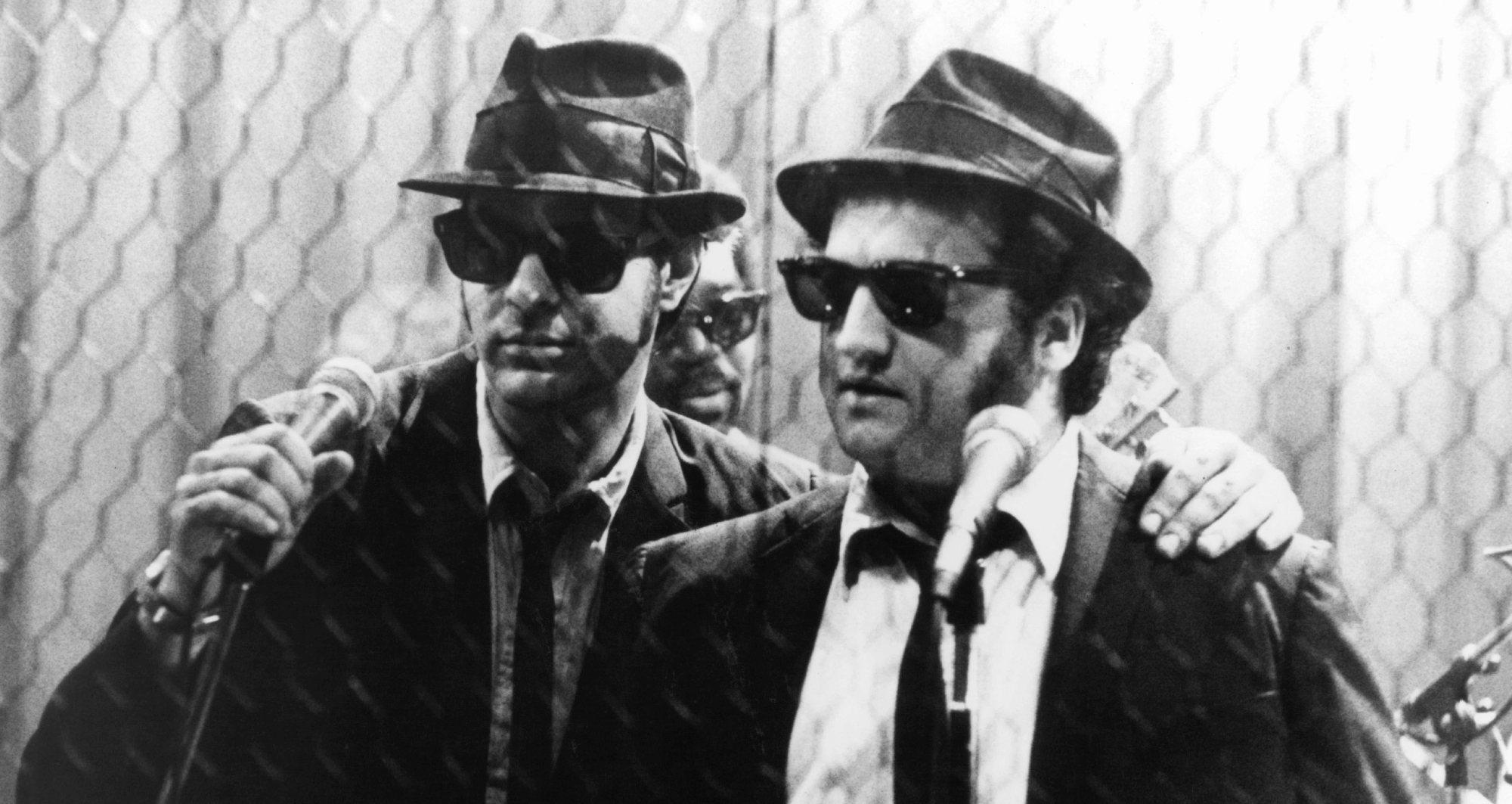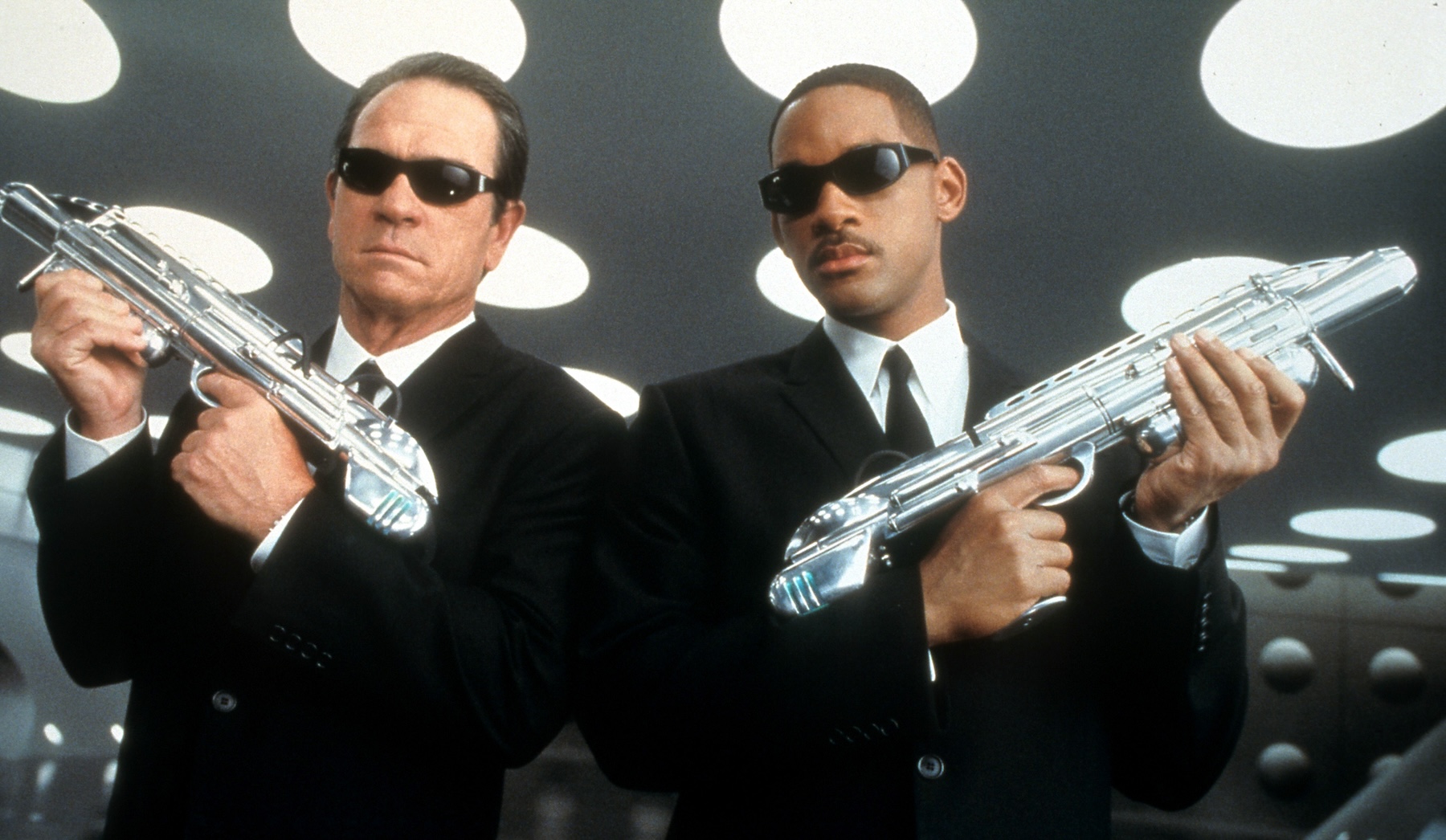Before Ghostbusters, Dan Aykroyd Wrote a Bizarre Blues Brothers Script
One day in 1979, the phone rang at producer Bob Weiss’ house. “Be on your property tonight,” said the voice on the other line. According to the book Wild and Crazy Guys: The Comedy Mavericks of the ’80s Changed Hollywood Forever by Nick de Semlyen, later that evening, an object came flying over the fence […] The post Before Ghostbusters, Dan Aykroyd Wrote a Bizarre Blues Brothers Script appeared first on Den of Geek.

One day in 1979, the phone rang at producer Bob Weiss’ house. “Be on your property tonight,” said the voice on the other line. According to the book Wild and Crazy Guys: The Comedy Mavericks of the ’80s Changed Hollywood Forever by Nick de Semlyen, later that evening, an object came flying over the fence and onto Weiss’ backyard. It was the script for a Blues Brothers movie that Wiess commissioned from Dan Aykroyd, who created the musical comedy act with John Belushi for Saturday Night Live.
If the way that Aykroyd delivered the manuscript was odd, the contents inside were even weirder. Titled The Return of the Blues Brothers and credited to the “Scriptatron GL-9000,” the script was 324 pages long, far more than the 120 page standard, and filled with unlikely digressions.
Weiss shouldn’t have been surprised. Even if the 26-year-old Aykroyd had written a script before (he hadn’t) or even seen a script before (he hadn’t), he likely would have turned in something weird anyway. Long before the legendary production mess that became Ghostbusters and the even more unwatchable mess that became his directorial debut Nothing but Trouble, the ever idiosyncratic Aykroyd wrote an absurd script about two Chicago guys on a mission from God.
The Birth of the Blues Brothers
While the Blues Brothers were initially brought to Saturday Night Live to warm up the crowd before tapings, the duo finally made their first official appearance on the show on Jan. 17, 1976. But they didn’t wear Jake and Elwood’s distinctive suits and raybans for their debut. Instead, they wore bee costumes.
Such were the stipulations of SNL producer Lorne Michaels, who had no faith in the Blues Brothers project. And with good reason, because it wasn’t entirely clear what the Blues Brothers were. The Canadian-born Aykroyd developed a love of all things blues as a young man, and he shared that with Chicago-native Belushi. The two enjoyed playing music together, Belushi belting out lyrics and doing somersaults while Aykroyd wailed on the harmonica, but they weren’t exactly a band.
When they took the act to Michaels, he rightly assessed the Blues Brothers (so named by Howard Shore, SNL’s first music director and later Oscar-winning composer of the Lord of the Rings movies) as not really a satire and not really an homage. And yet, it was enough for the equally indescribable Steve Martin, who asked the boys to open for his nine-city comedy tour. With the help of David Letterman’s band leader Paul Shaffer, the Blues Brothers gathered a band consisting of members of the soul legends Booker T. & the MGs and went on tour.
So successful were the Brothers that Belushi, still firing on all cylinders from his 1978 hit Animal House, suggested that the band become a movie. Somehow, Weiss agreed. And somehow, they all left it to Aykroyd to write the script.
A Messy Mission From God
If you’re the type of person to hang around a website called Den of Geek, you’re probably aware of Aykroyd’s gonzo original script for Ghostbusters. The script, titled “Ghost Smashers,” was written for Aykroyd, John Belushi, and Eddie Murphy, and featured a trio of paranormal hunters from the future going across multiple dimensions in a dark horror epic.
Aykroyd applied the same approach to writing a Blues Brothers movie, filling it with every idea and interest that jumped into his imagination. No, Jake and Elwood didn’t necessarily come from the future and cross dimensions, but they did do a heck of a lot more on their mission from God.
The produced movie’s plot follows Jake and Elwood as they gather together the members of their old band. Each encounter with the member serves as an opportunity for a musical number and/or a comedy set piece.
To recruit brass man Mr. Fabulous (Alan Rubin), the brothers wreak havoc in the upscale restaurant where he serves as maître d’, ordering too much food and harassing the clientele. When the Brothers drop by a soul food restaurant to grab Matt “Guitar” Murphy and saxophonist Blue Lou Marini, a squabble between the guitarist and his wife Aretha Franklin leads to a showstopping rendition of “Think,” powerful despite the Queen of Soul’s difficulty with ad-libbing her own vocals.
According to Semlyen, Aykroyd had much bigger ambitions for his script. “He had two somewhat surprising touchstones in mind,” writes Semlyen. “Bernardo Bertolucci’s five-hour Italian political drama 1900 and Stanley Kubrick‘s candlelit period piece Barry Lyndon.”
Somehow, those inspirations led Aykroyd to a rambling free-for-all of a story. According to a Vanity Fair article outlining the movie’s troubled production, Aykroyd wrote the script in “a kind of free-verse style,” even getting “meta, with separate story lines detailing the recruitment of all eight backup musicians.” Ever the spiritual seeker, Aykroyd included “explications of Catholicism [and] recidivism” in his script, going further than the imperious nun Sister Mary Stigmata (Katherine Freeman) or the levitating charismatic preacher Reverend Cleophus James (James Brown).
“The script is never-ending,” then-Universal Pictures president Ned Tanen thinks. “It doesn’t really work. It’s like a long treatment or something.”
Aykroyd indulged his other great passion too, cars and machinery. According to Vanity Fair, in The Return of the Blues Brothers, “Aykroyd wants a scene explaining why Elwood’s car, the Bluesmobile, has magical qualities.” Wild and Crazy Guys provides more detail, describing the Bluesmobile as specifically “a 1974 Dodge Monaco 440 ex-police cruiser … very deliberately a vehicle from before the dawn of unleaded gas.”
“Landis doesn’t but agrees to film it,” reported Vanity Fair, referring to director John Landis. “He knows he’ll just cut it later.” Indeed, after wrangling Belushi enough to make Animal House into a viable hit, Landis came aboard The Blues Brothers to give Aykroyd some direction. And he did so in exactly the manner suggested by that explanation: he cut and trimmed the script until it turned into something funny and moving.
“I wrote a heavy, urban experience,” Aykroyd later told Semlyen. “What [Landis] did was to put a little Disney flash into it, you know what I mean? And it worked really well.”
The Blues Brothers Hit Machine
It’s hard to call the finished Blues Brothers film “Disney flash.” It is a movie of excesses, with a bare bones narrative about Jake and Elwood getting their band back together to save an orphanage cluttered with ridiculous gags, jaw-dropping musical sequences, and so, so many car crashes.
Given the messy product that made it to theaters on June 20, 1980 and the bizarre script that Aykroyd wrote, it should come as no surprise that the filming process was equally chaotic. The budget grew as the production wrangled together cop cars, legendary musicians, and drugs to keep Belushi and company working.
According to Semlyen, by the time The Blues Brothers reached its release date, it had gained the nickname 1942, an unfavorable reference to the Steven Spielberg debacle (also featuring Belushi and Landis) 1941. “Lew [Wasserman, the old-school head of Universal] would nail me every day,” Tanen told Vanity Fair. “I wasn’t getting phone calls. He would be in my office. He comes in and says, ‘Goddammit.‘” When certain scenes took too long to shoot, Tanen recalled Wasserman yelling, “‘God damn this thing—they’ve only got two and a half minutes to do it… God damn that director.'”
And yet, unlike 1941, the final version of The Blues Brothers managed to not only win over critics but also turn a profit. From its then-mammoth $27.5 million budget, The Blues Brothers earned $115.2 million at the box office and became an undisputed classic, launching the (sometimes) profitable franchise of SNL movies.
Would Return of the Blues Brothers have done even better? Aykroyd’s passion projects Nothing But Trouble and Blues Brothers 2000 suggest “no,” but it’s clear that his enthusiasm and wild imagination has its value, provided someone can reign in the scripts he throws over producers fences.
The post Before Ghostbusters, Dan Aykroyd Wrote a Bizarre Blues Brothers Script appeared first on Den of Geek.
What's Your Reaction?





















































